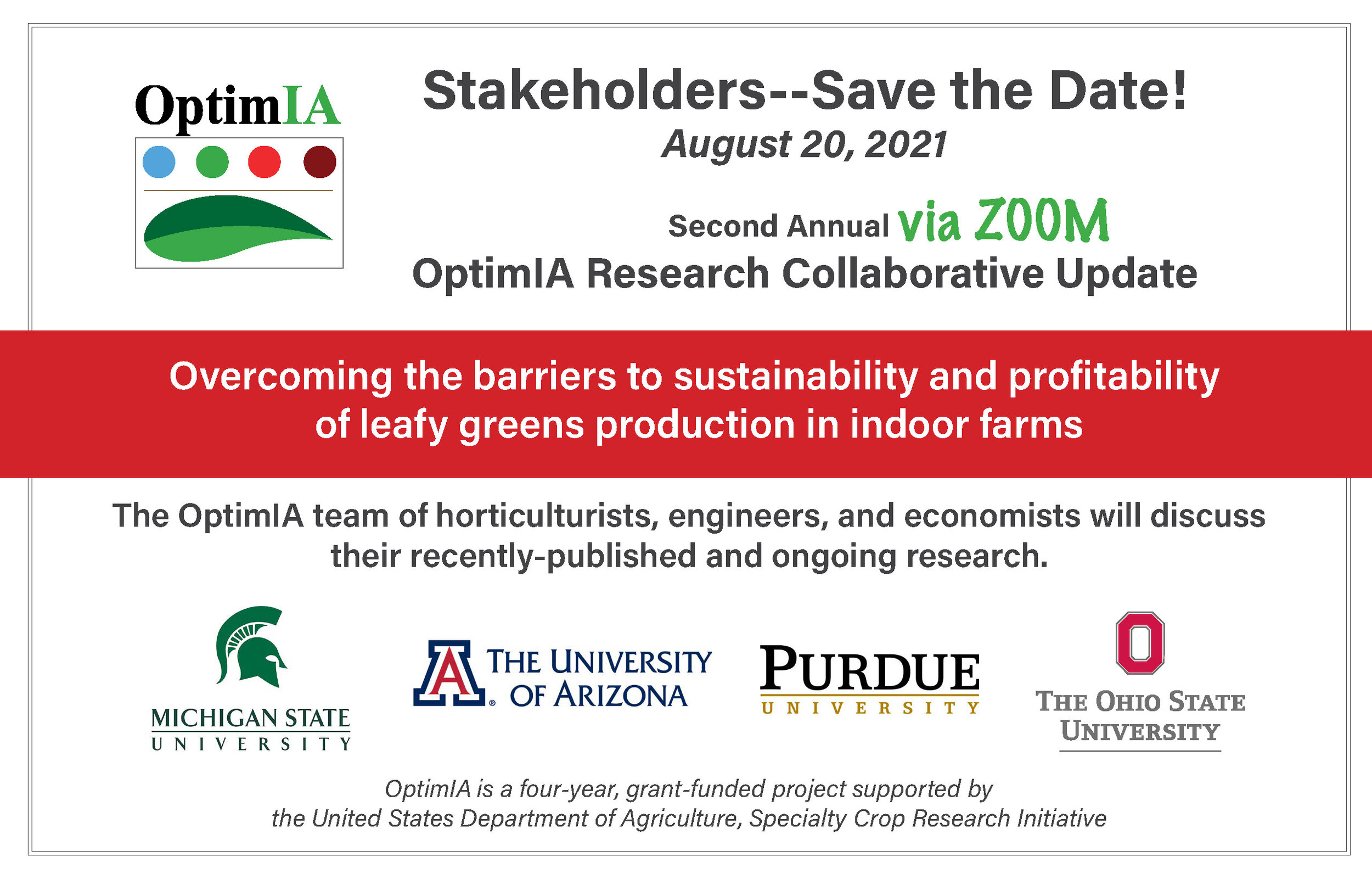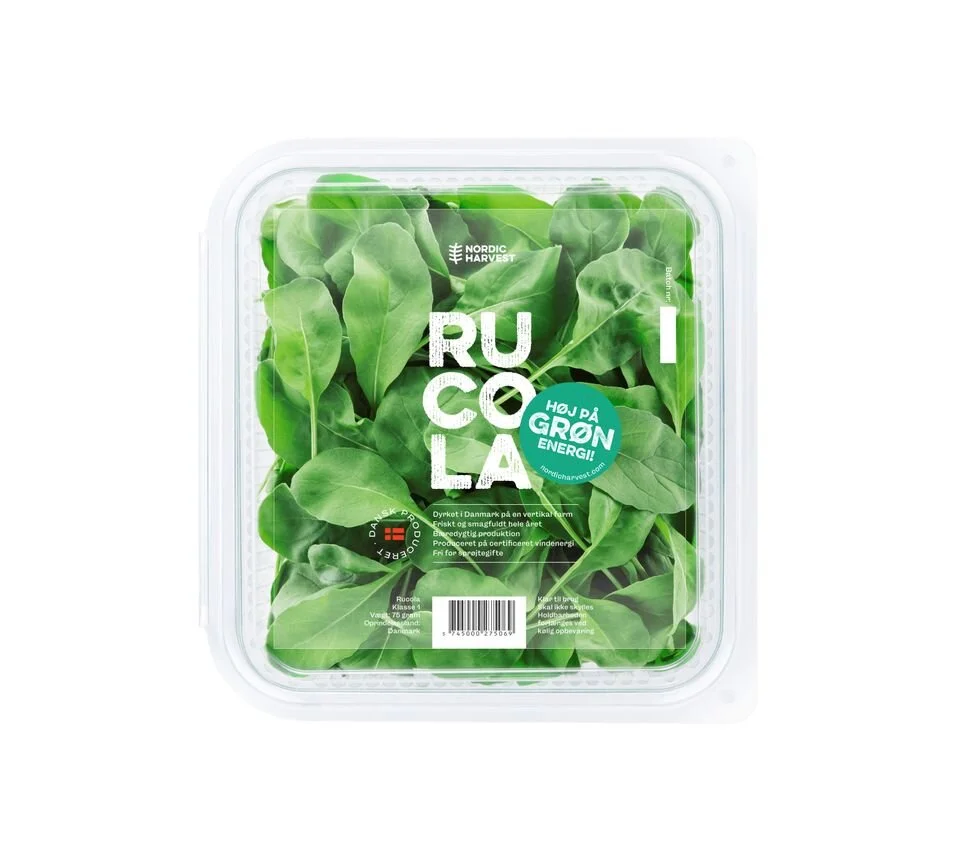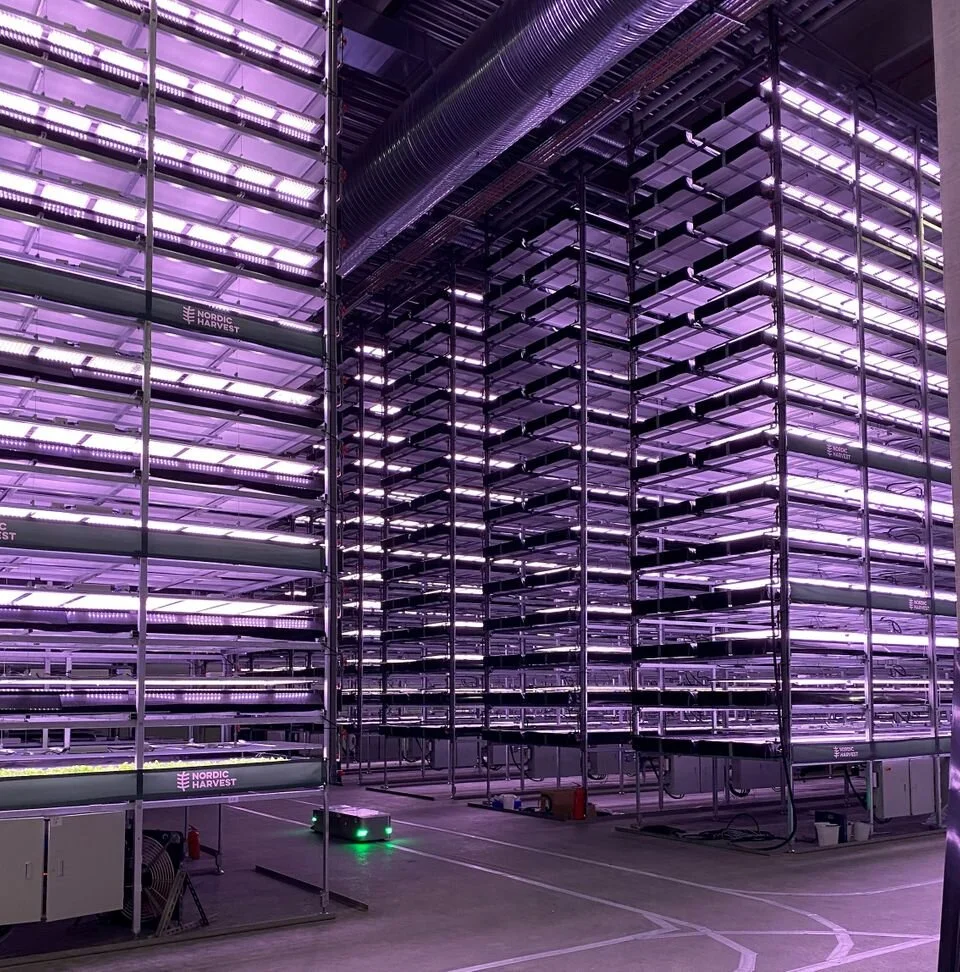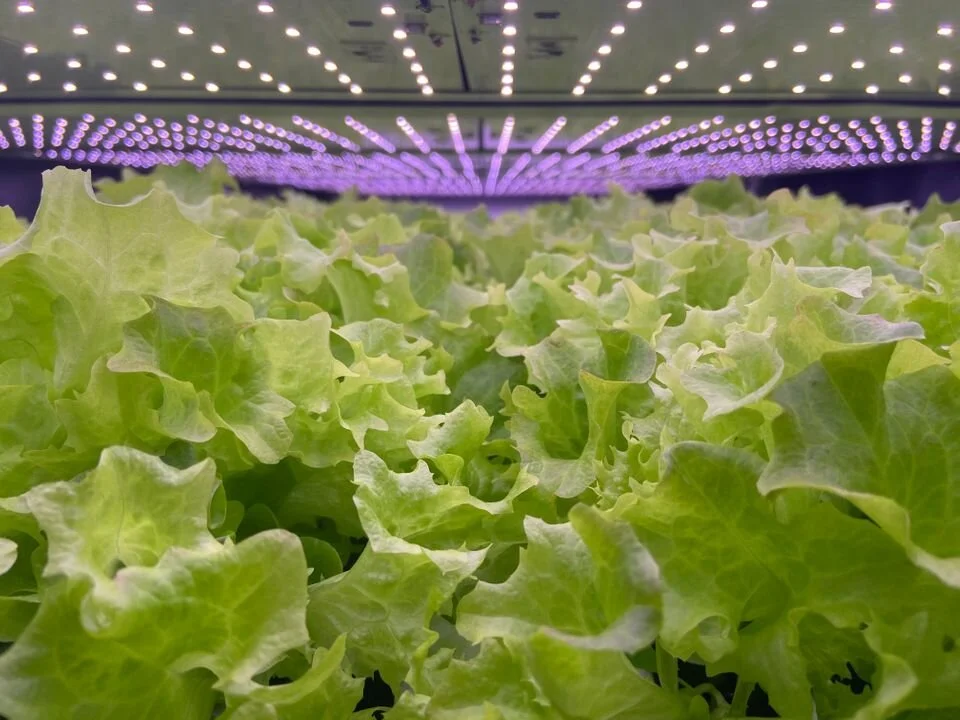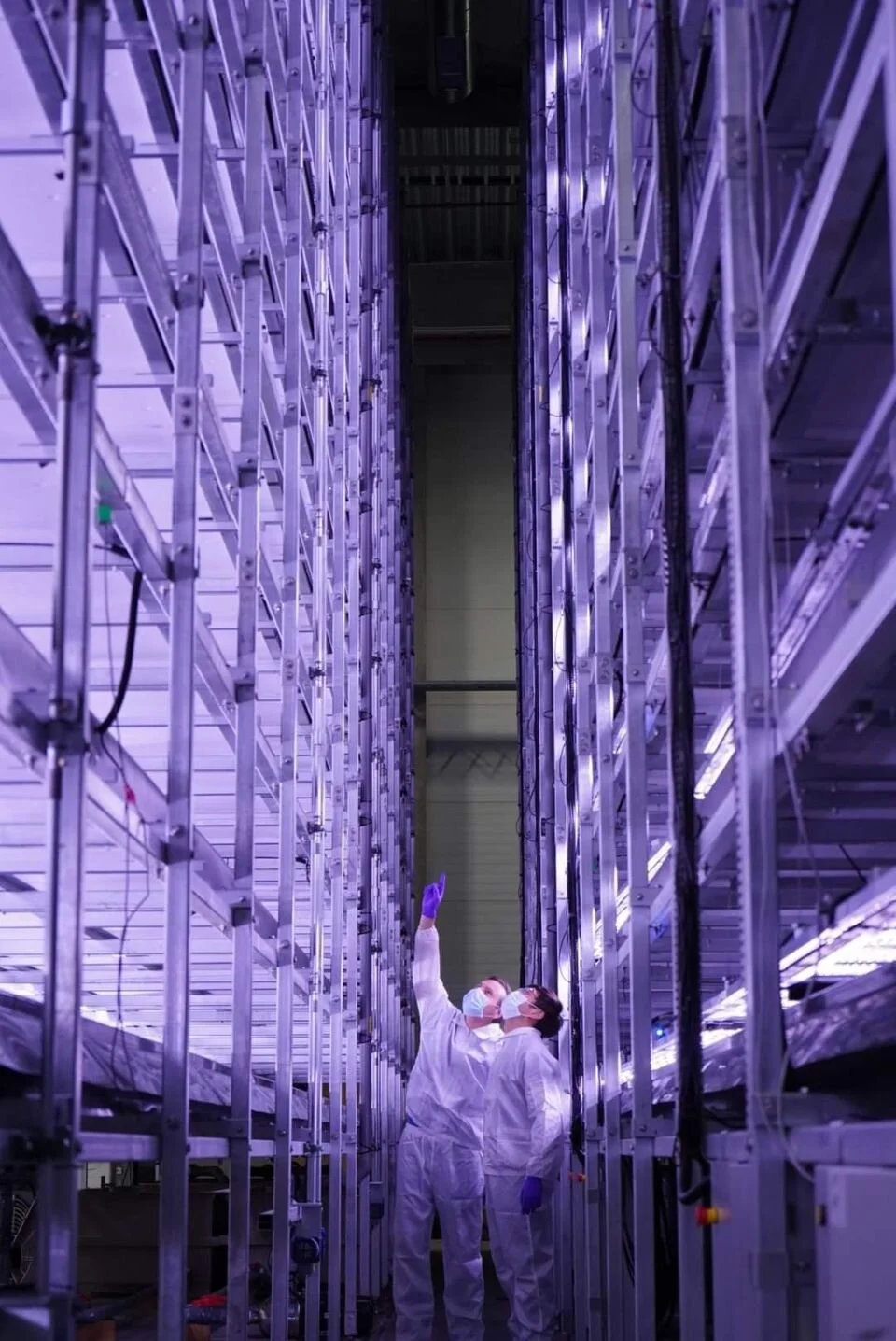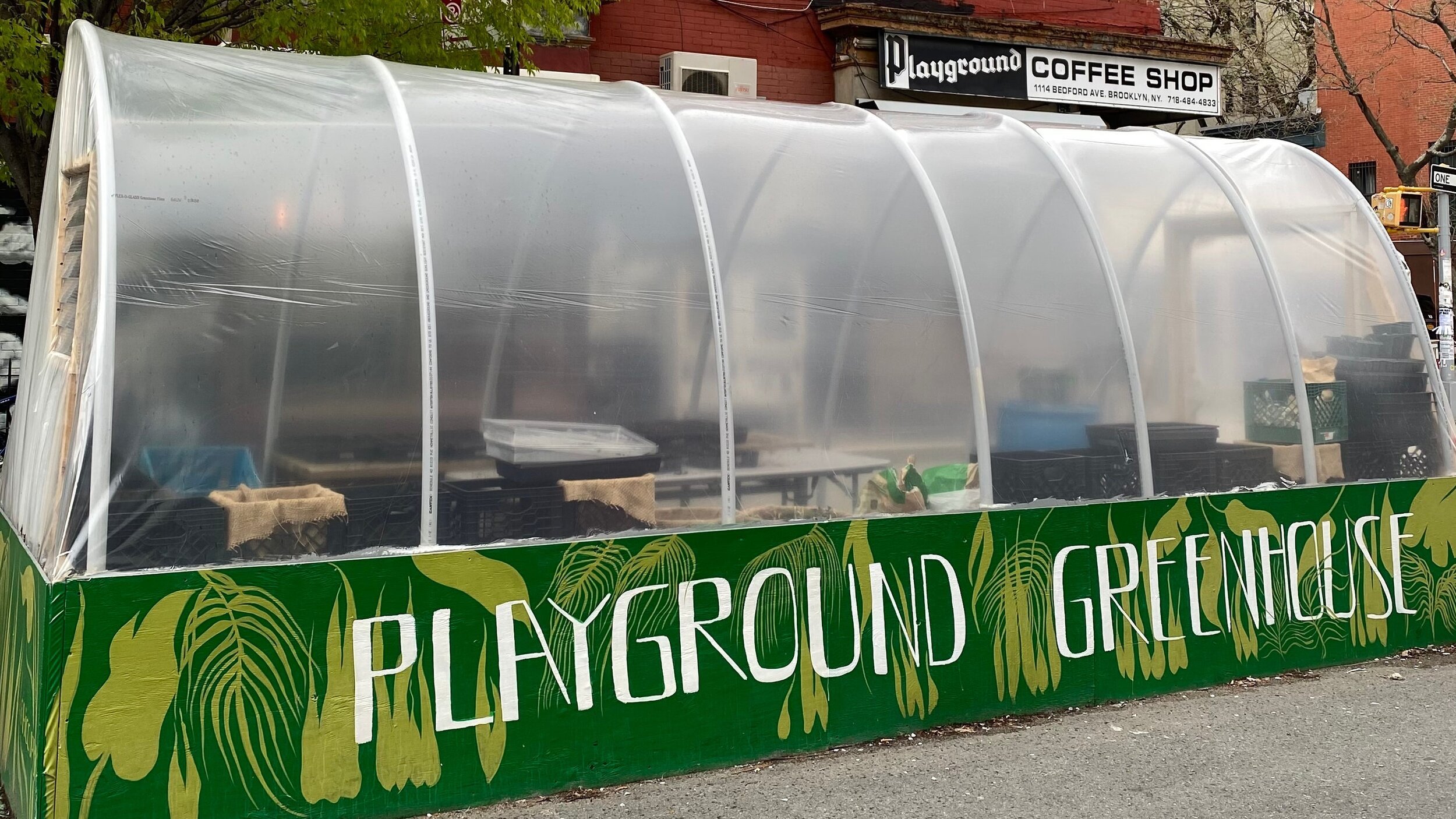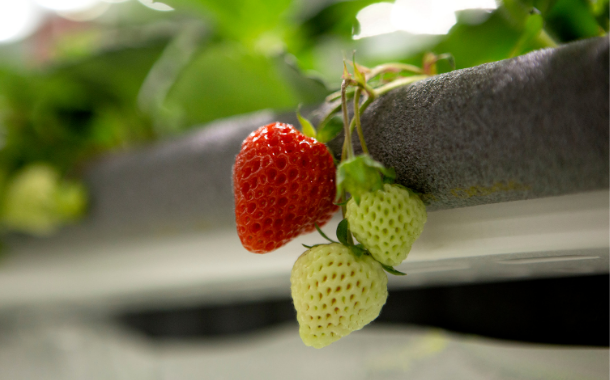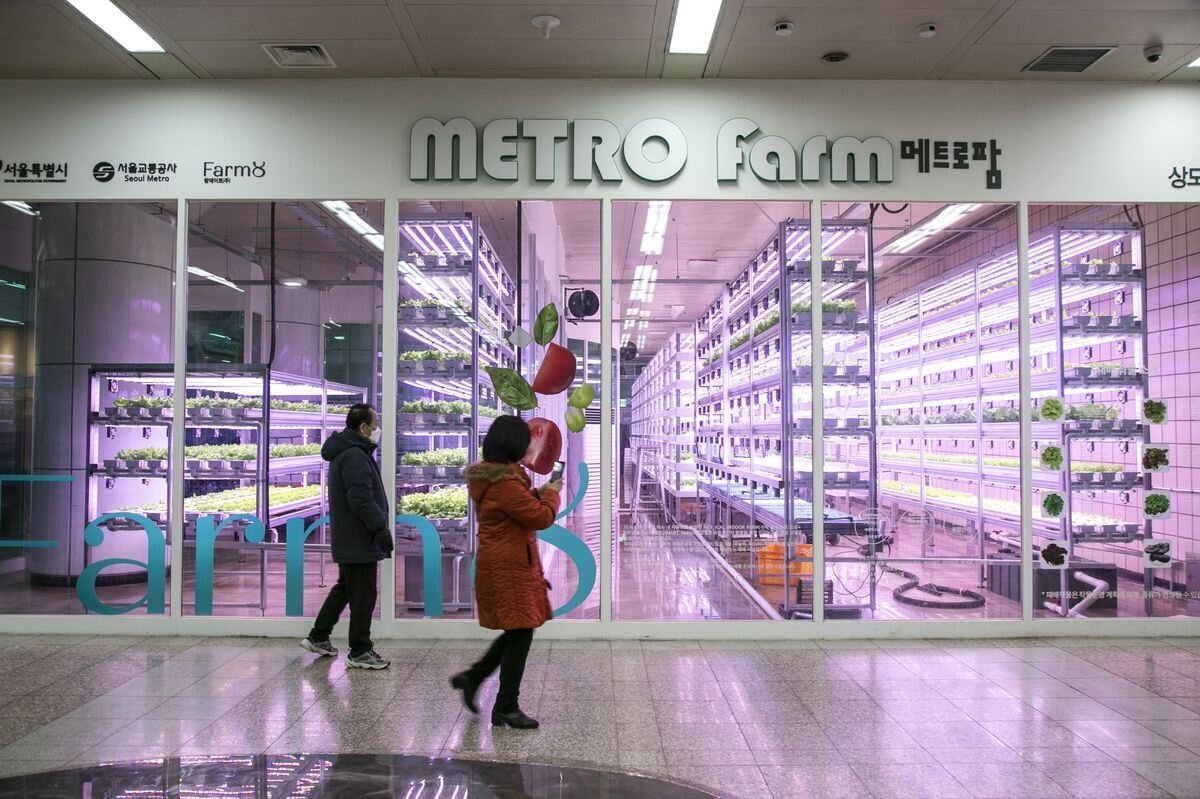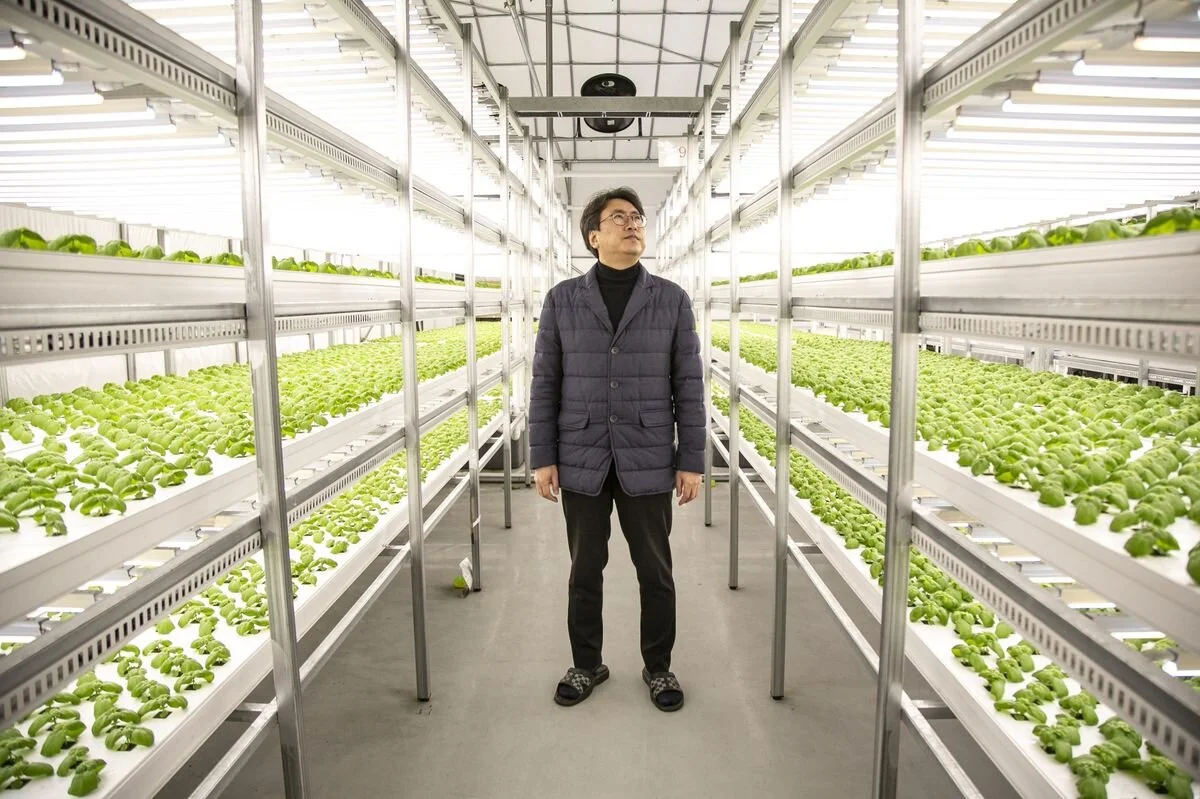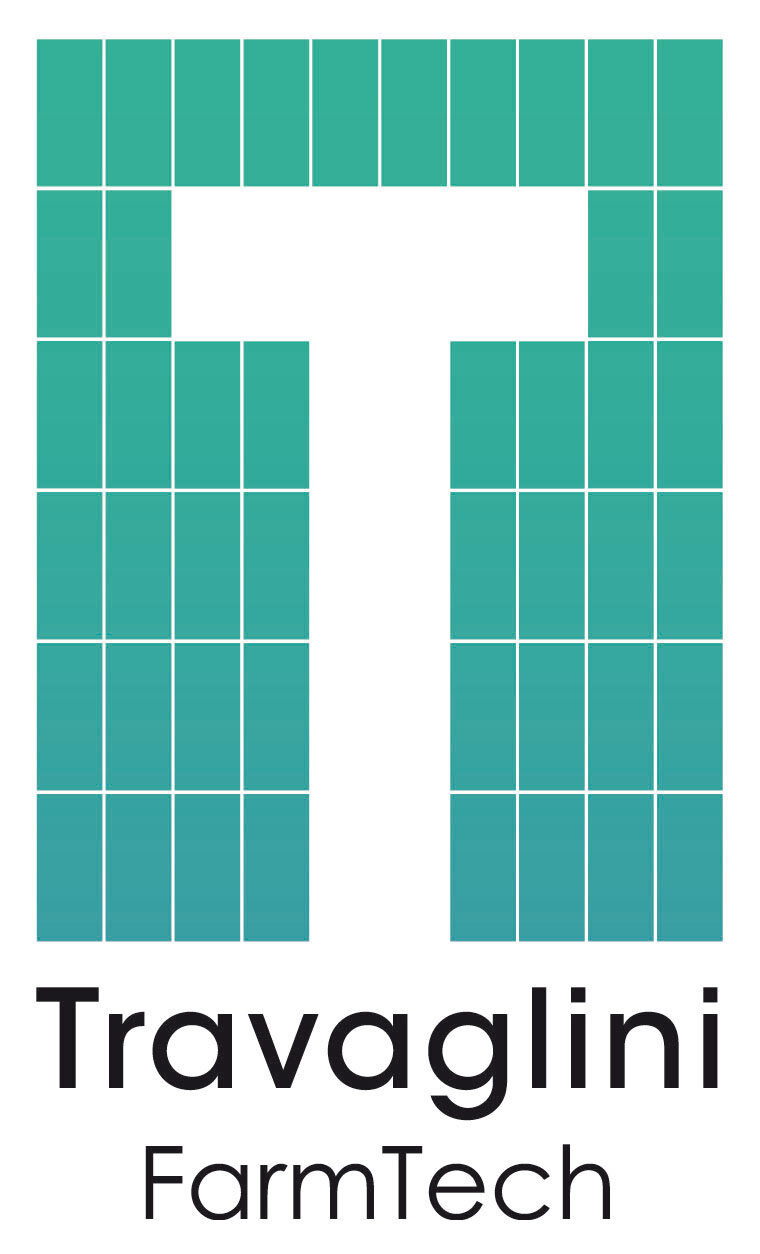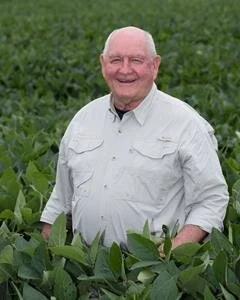
Welcome to iGrow News, Your Source for the World of Indoor Vertical Farming
Latest Research On Indoor Farming Now Just A Click Away
OptimIA is a website featuring research results from six horticulture, engineering, and agricultural economics professors and Extension specialists
By Brian Sparks
May 19, 2021
Greenhouse growers now have access to a new online resource to help make their indoor farming businesses more productive and profitable. OptimIA is a website featuring research results from six horticulture, engineering, and agricultural economics professors and Extension specialists, and their graduate students and technicians, at Michigan State University, The Ohio State University, Purdue University, and the University of Arizona. Born from a four-year, USDA grant-funded project, the website is one tool researchers are making available to anyone interested in overcoming the technological, environmental, and financial challenges common to indoor farming.
In addition to the latest published research, the website offers trade articles authored by OptimIA project scientists, indoor production research highlights, recorded webinars presented by top national and international indoor farming experts, upcoming events related to indoor farming and the OptimIA project, and FAQs.
The OptimIA project’s ultimate goal is to define the environmental parameters within which leafy greens such as lettuce perform best in indoor vertical farms. While the work of each project researcher is unique, it all centers around the effects of light, carbon dioxide, humidity, temperature, air movement, and economics (operating, labor, equipment, etc.) on the sustainability and profitability of using indoor farms to produce leafy greens and microgreens.
The site will be frequently updated with new research results, as they become available.
To access the OptimIA project website, click here.
OptimIA is funded by the USDA‘s Specialty Crop Research Initiative.
Save The Date!
OptimIA (Optimizing Indoor Agriculture) is a USDA-funded Specialty Crop Research Initiative project to support indoor farming industry through critical research and extension activities
OptimIA Stakeholder Meeting
August 20th, 2021
10:00 AM - 3:00 PM Eastern
Plan to join our annual stakeholder meeting online to learn about our collaborative research update!
More information available on our website
OptimIA (Optimizing Indoor Agriculture) is a USDA-funded Specialty Crop Research Initiative project to support the indoor farming industry through critical research and extension activities.
Growing Lettuce Under Transparent Solar Cells
A team of researchers at North Carolina State University has shown that using semi-transparent organic solar cells (OSCs) can help greenhouse growers generate electricity and reduce energy use while still cultivating viable crops of lettuce
A team of researchers at North Carolina State University has shown that using semi-transparent organic solar cells (OSCs) can help greenhouse growers generate electricity and reduce energy use while still cultivating viable crops of lettuce.
The research found that red lettuce can be grown in greenhouses with OSCs that filter out the wavelengths of light used to generate solar power. The researchers grew crops of red leaf lettuce in greenhouse chambers from seed to full maturity under constant conditions, apart from the lighting regime.
A control group of lettuces was exposed to the full spectrum of white light, while the rest were dived into three experimental groups. Each of those groups was exposed to light through different types of filters that absorbed wavelengths of light equivalent to what different types of semi-transparent solar cells would absorb.
To determine the effect of removing various wavelengths of light, the researchers assessed a host of plant characteristics, such as leaf number, leaf size, and lettuces weight, as well as how much CO2 the plants absorbed and the levels of various antioxidants. “Not only did we find no meaningful difference between the control group and the experimental groups, but we also didn’t find any significant difference between the different filters,” said study co-author Brendan O’Connor.
“We were a little surprised – there was no real reduction in plant growth or health,” added Heike Sederoff, co-author of the study and professor of plant biology. “It means the idea of integrating transparent solar cells into greenhouses can be done.”
Lead photo caption: The study suggests transparent solar panels will not affect lettuce crop growth
New Solar Greenhouse With A Window To The Future Opens
The glasshouse was built by Perth high-tech building materials company ClearVue Technologies using three different versions of its transparent solar photovoltaic glazing panels
10-05-2021 | Farm Online
AUSTRALIA, Perth- The world's first clear solar glass greenhouse has been opened at Murdoch University's new grains research precinct in Perth. The glasshouse was built by Perth high-tech building materials company ClearVue Technologies using three different versions of its transparent solar photovoltaic glazing panels.
SOLAR GREENHOUSE: The world's first clear solar glass greenhouse at Perth's Murdoch University uses three different versions of ClearVue Technologies' transparent solar photovoltaic glazing panels.
The ClearVue technology turns windows into a generator of renewable energy.
The facility will be used by Murdoch University geneticist Professor Chengdao Li and his team to develop new plant breeding technologies and use them to develop commercial crop varieties.
Murdoch University Vice-Chancellor Professor Eeva Leinonen said the ClearVue greenhouse project was a number of years in the making but represented what universities and industry could achieve when they worked together.
"Murdoch's research strategy is focused on food, health, and the environment and the interconnections between each," Professor Leinonen said.
"I am delighted ClearVue has become an important new collaborator as we seek answers to wicked global problems - increased food demand, environmental sustainability and food safety."
Constructed using a $1.6 million grant from the federal government's AusIndustry Co-operative Research Centre Projects program, the greenhouse uses clear solar glass that not only lets natural sunlight through but also generates power using the unwanted UV and IR light wavelengths and converts these to power from photovoltaics at the perimeter of the window.
SOLAR VISIONARY: ClearVue executive chairman Victor Rosenberg.
The ClearVue greenhouse has a range of sensors that record and present data in real-time providing scientists with accurate information relating to conditions like temperature, humidity, and the amount of light that plants are receiving.
This information is used to make automatic adjustments to air conditioning, lighting, fans, louvres, blinds, and reticulation systems which in turn allows scientists to maintain a constant micro-climate (23 to 26 degrees C) that provides optimum growing conditions - all while being powered by the energy generated by the ClearVue glass.
ClearVue Technologies executive chairman and founder Victor Rosenberg said ClearVue was also looking to expands into Japan, the US, and Europe.
He hoped to develop a carbon sink that would capture all the carbon produced by the various equipment in the greenhouse and turn it into food-grade carbon dioxide which could be fed to the plants to boost growth.
ROOM WITH A VIEW: Murdoch University's new clear solar glass greenhouse.
"Estimates indicate the world's arable land has reduced by one third in the past 40 years," Mr Rosenberg said.
"By 2050, two-thirds of the world's population is predicted to be urbanized, which will further impact the availability of land for agricultural production."
He said the ability to control the microclimate within the ClearVue greenhouse created an optimum growing environment to achieve higher yields.
Leafy plants required protection from harmful UV rays in the same way humans need to protect their skin, he said.
Plants did this naturally by producing a waxy substance that shielded them from harmful UV rays.
Mr Rosenberg said ClearVue glass blocked these UV rays so the energy required by plants to create the protective layer on leafy vegetables can be redirected to growing more produce.
Source and Photo courtesy of Farmonline
USA: CONNECTICUT - Killingly High School Breaks Down How Adding A ‘Hydroponics’ And ‘Aquaponics’ Class Encourages Sustainability
Beth Knowlton is a plant science teacher at Killingly and has been for about fifteen years. She tells News 8 hydroponics is a fairly new career in the AG industry, “The future holds us growing plants in warehouse buildings and things in inner cities so we can provide a local food source.”
May 6, 2021
KILLINGLY, Conn. (WTNH) — At Killingly High School over the past few years, they’ve truly enhanced their Agriculture Education Program. They’ve added a hydroponics and aquaponics class to help encourage sustainability.
Beth Knowlton is a plant science teacher at Killingly and has been for about fifteen years. She tells News 8 hydroponics is a fairly new career in the AG industry, “The future holds us growing plants in warehouse buildings and things in inner cities so we can provide a local food source.”
It’s a unique way of agriculture, that relies solely on the light and water in the greenhouse, using no soil at all.
They grow everything from cucumbers to tomatoes and kale.
They’re hoping to add to their hydroponics greenhouse, a misting system. They’ll be able to plant strawberries and have their roots continually misted from the inside, helping them grow.
Just down the hall, Courtney Cardinal teaches her aquaponics students the ways to use fish waste to grow plants.
The setup for aquaponics is a little different, plants grow in gravel beds connected to a water source that comes from pools full of tilapia. As the gravel beds fill and drain, the nutrients are brought to the roots of the plants.
They use hundreds of tilapia fish to water the plants. Cardinal says, “One input of the fish food is actually growing two products. So we’re growing both the fish, the filets of the fish, and then the waste is being reused to grow plants.”
The major nutrient the plants need is Nitrogen, and they get that from the fish waste. Non-traditional but efficient ways to grow food and adjust to the advancing industry.
Vertically Grown Salads And Fresh Herbs In Føtex And Bilka Across Denmark
Danske Nordic Harvest has entered into a strategic partnership with Salling Group
Danske Nordic Harvest has worked at high pressure to get one of the world's largest vertical farms, fitted with the ground-breaking technology, ready for production for Danish consumers, and now the products are landing on Danish shelves for the first time: "The products from Nordic Harvest are unique in taste and quality. They are made without the use of pesticides, with an approx. 250 times less water consumption and through completely optimal land use.
We have believed in Nordic Harvest's innovative products for several years and are pleased that it has now become a reality," says Stephan Bruhn, category director at Salling Group, and continues: "We know that consumers are interested in the green transition, food security, and goods without chemicals, and we are convinced that sustainable products in this form will be a hit. That's why we also go out and launch in all føtex and Bilka's for a start."
With the agreement, Nordic Harvest will deliver almost three tonnes of salads and herbs a week to the Salling Group. At the same time, the plan is to test new products in Salling Group's chains on an ongoing basis.
On Nordic Harvest's vertical farm in Taastrup, the crops are grown on floors, which utilizes space. On 14 floors, the salads and herbs are grown in water in a closed and controlled environment that gives the plants the optimal conditions for growth, taste and nutritional content."
From harvest until they are in the package in the fridge, it takes about 10 minutes. From seeds to supermarkets, they have never been in contact with soil, human hands, bacteria, fungal spores or pests. And they, therefore, do not need to be rinsed, either when packed or before being used at home at the dining table. So there is nothing along the way that degrades the plant, and therefore the products have an impressive shelf life that minimizes food waste.
"We could not have found a better launch partner than Salling Group. Our common values around sustainable production and their skilled sense of taste and quality have meant that we have had a fantastic dialogue and a good collaboration from our very beginning. I am looking forward to seeing how Danish consumers receive our products," says Anders Riemann, CEO of Nordic Harvest.
The prices of Nordic Harvest products will be at the same level as similar organic products. All the products from Nordic Harvest are delivered cut and in boxes that do not crush the leaves, and which can also be easily closed again if you do not use it all at once. The packaging is made from 100 percent recyclable recycled plastic.
Source: https://via.ritzau.dk/
Photo source: Dreamstime.com
Publication date: Fri 30 Apr 2021
VIDEO: Ottawa Startup Plantaform Hopes To Harvest Profits From Indoor Gardening Technology
Ottawa biotech startup Plantaform's system, dubbed Rejuvenate, uses a concept called fogponics to grow herbs and leafy vegetables indoors
Ottawa biotech startup Plantaform's system, dubbed Rejuvenate, uses a concept called fogponics to grow herbs and leafy vegetables indoors.
A Carleton University business grad says his new startup is planting the seeds of a flourishing global horticulture enterprise with a soil-free system that grows herbs and leafy vegetables in a container small enough to sit on a kitchen countertop.
Alberto Aguilar launched fledgeling biotech startup Plantaform last spring with longtime friend Kiwa Lang, an industrial designer who attended high school with Aguilar in Dubai and now lives in Australia.
Lang was looking for sustainable alternatives to traditional horticulture and discovered a concept called fogponics, a technique pioneered by NASA that nourishes plants with nutrient-enriched water vapour rather than soil. He immediately reached out to his old pal, and a truly international startup was born.
“It’s extremely efficient,” Aguilar says of the technology, explaining that it uses 95 per cent less water than traditional soil-based horticulture operations.
Unlike more well-established hydroponics systems, Plantaform’s product – dubbed Rejuvenate – doesn’t submerge plant roots in water. Rather, it circulates a fine mist loaded with nutrients throughout an egg-shaped device roughly 60 centimetres high by 60 centimetres wide.
The high-tech indoor garden can grow up to 15 plants at a time, ranging from herbs such as basil and oregano to leafy greens including lettuce and kale.
35-day growing cycle
Customers set the proper lighting and nutrient mix on a smartphone app. Aguilar says the system can effectively run itself for up to three weeks before the water supply needs to be replenished, and it takes roughly 35 days to harvest a crop from the time seeds are “planted” in the device.
Plantaform’s own growth path has been a little rockier.
Backed by about $100,000 in funding from the founders’ family and friends as well as investors in Aguilar’s previous startups, the company stumbled out of the gate early last year.
The initial design for Rejuvenate failed, and it’s taken about half a dozen iterations to get the concept just right. In addition, Aguilar notes ruefully, the firm’s original team “collapsed” after several employees quit last summer because the founders couldn’t afford to pay them full-time salaries.
Supply-chain disruptions
Meanwhile, the pandemic wreaked havoc with the startup’s supply chain, forcing Aguilar and Co. to abandon foreign suppliers in China and elsewhere and manufacture the bulk of the components for the prototypes in their own homes on 3D printers.
But the plucky grow-op persevered, overhauling its development staff and bringing on veteran Ottawa-based engineer Georges Hamoush as chief operating officer. Plantaform eventually signed a Chinese contractor to manufacture most of the components, which will be assembled locally at Stittsville’s L-D Tool & Die.
If all goes according to plan, the first units will be shipped to customers this fall – and Aguilar plans to personally deliver as many as he can.
“We’ve made a lot of mistakes, but you know what? We’re not giving up,” says the budding biotech magnate, who grew up in Barcelona, spent some of his teenage years in Dubai and moved to Ottawa in 2014 to finish high school at Lisgar Collegiate before studying international business at Carleton.
"I’m really trying to put Ottawa on the map."
Alberto Aguilar - CEO and co-founder of biotech startup Plantaform
“We’re confident that if we keep trying, it’ll eventually work out.”
The 24-year-old Aguilar boasts an accomplished entrepreneurial resume. Plantaform is already his third startup, and he earned spots in Invest Ottawa’s pre-accelerator and Ottaw’’s Startup Garage with his previous ventures.
He’s hoping to secure additional seed funding for Plantaform later this year, with an eye to landing a series-A round early in 2022. The company also has its sights set on even bigger markets – it’s currently working with the Vineland Research and Innovation Centre, a non-profit organization based near Niagara Falls, on a system to grow cannabis using fogponics technology.
The worldly Aguilar says he’s hoping his venture can elevate his adopted hometown on the international biotech stage.
“I’m really trying to put Ottawa on the map,” he says. “We want to go global.”
Vertical Farming On The Rise: Arkansas Agricultural Experiment Station And 80 Acres Farms Enter Research Agreement
Utilizing world-class technology and analytics to offer customers a wide variety of pesticide-free food with a longer shelf-life that exceeds the highest food safety standards
80 Acres Farms enters into a master research agreement with the Experiment Station at The University of Arkansas with scientists to propose collaborative vertical farming research projects aimed to advance the science of vertical farming
NEWS PROVIDED BY 80 Acres Farms
HAMILTON, Ohio, April 26, 2021 /PRNewswire/ -- Vertical farming business 80 Acres Farms has entered into a collaborative research agreement with the Arkansas Agricultural Experiment Station to advance the science of vertical farming.
Scientists with the experiment station, the research arm of the University of Arkansas System Division of Agriculture, will coordinate with 80 Acres Farms researchers to pursue a variety of vertical farming research topics, said Bryan Renk, director of commercialization for the division's Technology Commercialization Office.
Utilizing world-class technology and analytics to offer customers a wide variety of pesticide-free food with a longer shelf-life that exceeds the highest food safety standards.
"Vertical farming is growing and trending," Renk said. "There are multiple companies forming across the U.S. that are trying to take advantage of that trend."
Jean-François Meullenet, senior associate vice president for agriculture research and director of the experiment station, said the agreement provides a unique opportunity for research.
"We are very excited about this new research partnership with 80 Acres Farms," Meullenet said. "Protected farming is a strategic research direction for the Arkansas Agricultural Experiment Station, and 80 Acres Farm is a leader in this area."
Renk said that the initial round of proposed and current research includes a project analyzing the chemical components of 80 Acres produce, an exploration into new protocols for vertical farming, and evaluation of novel blackberry variety selections that are suited for the vertical farming environment.
"We have a great multidisciplinary team of faculty that can make great contributions to the development of vertical farming technology," Meullenet said. "I look forward to seeing the impact we can have through this research."
"80 Acres is expanding its vertical farming R&D facility in Springdale, Arkansas to develop the growing recipes for multiple leafy and fruiting produce crops," said Victor Verlage, senior vice president for operations, agronomy, and research and development at 80 Acres Farms. "We are calibrating and aligning all the growing conditions, incorporating several proprietary AgTech capabilities that were not available until recently, to bring hyper-fresh fruits and vegetables loaded with taste and nutrition so our consumers can indulge in healthy diets," he said.
Margaret Worthington, assistant professor of fruit breeding and genetics in the horticulture department for the experiment station and Dale Bumpers College of Agricultural, Food and Life Sciences at the University of Arkansas, is evaluating blackberry varieties that may perform well in these novel growing conditions.
"We hope to identify blackberry breeding selections that perform well in fully-controlled indoor environments and vertical farms," Worthington said.
"Fruit breeding is a long-term effort," she said. "We need to be forward-thinking and consider how the potential varieties moving through our breeding pipeline are going to fit into new markets and productions systems that are just beginning to develop.
"The Arkansas Fruit Breeding Program has a history of mutually beneficial public-private research collaborations and I am looking forward to working with this new partner," she said.
In addition to collaborating on research, 80 Acres Farms also plans to create internship opportunities for Bumpers college students.
"80 Acres Farms is eager to provide opportunities for the next generation of farmers where they will have access to best-in-class vertical farming technology," said Verlage. "The students will have immersive training right here in Northwest Arkansas, minutes from the university campus."
To learn more about the Division of Agriculture research, visit the Arkansas Agricultural Experiment Station website: https://aaes.uark.edu. Follow us on Twitter at @ArkAgResearch and Instagram at ArkAgResearch.
About the Division of Agriculture
The University of Arkansas System Division of Agriculture's mission is to strengthen agriculture, communities, and families by connecting trusted research to the adoption of best practices. Through the Agricultural Experiment Station and the Cooperative Extension Service, the Division of Agriculture conducts research and extension work within the nation's historic land grant education system.
The Division of Agriculture is one of 20 entities within the University of Arkansas System. It has offices in all 75 counties in Arkansas and faculty on five system campuses.
The University of Arkansas System Division of Agriculture offers all its Extension and Research programs and services without regard to race, color, sex, gender identity, sexual orientation, national origin, religion, age, disability, marital or veteran status, genetic information, or any other legally protected status, and is an Affirmative Action/Equal Opportunity Employer.
About 80 Acres Farms
80 Acres Farms is a vertical farming leader providing customers with the freshest and most nutritious fruits and vegetables at affordable prices. Utilizing world-class technology and analytics, the Company offers customers a wide variety of pesticide-free food with a longer shelf-life that exceeds the highest food safety standards.
For further information, please contact us at:
Rebecca Haders / rebecca.haders@eafarms.com / +1 513-910-9089
Related Files
Related Images
80-acres-farms-vertical-farming.jpg
80 Acres Farms' Vertical Farming Technology
Utilizing world-class technology and analytics to offer customers a wide variety of pesticide-free food with a longer shelf-life that exceeds the highest food safety standards.
SOURCE 80 Acres Farms
USA: Zenat Begum Turned A Bustling Brooklyn Street Corner Into A Working Greenhouse
She reached out to Jasper Kerbs of the Cooper Union Garden Project and, with the help of several volunteers, the structure was erected in October of last year. The shop is utilizing one of the city’s outdoor vending permits and they’re in the midst of harvesting this month
The owner of Playground Coffee Shop transformed the cafe’s outdoor dining space into a project centered around care, creativity, and community
April 21, 2021
“I’m inviting people that I love to come and dress up the facade,” Zenat says of the greenhouse's verdant mural by artist Tiffany Baker. “I’m inviting people that I really respect to come and build these things because we deserve the best.”Image courtesy of Zenat Begum
To understand how a fully functioning greenhouse ended up at the busy intersection of Quincy Street and Bedford Avenue in Bed-Stuy, Brooklyn, it’s important to get to know Zenat Begum, the owner of Playground Coffee Shop.
Zenat opened the shop back in 2016, in a space that previously housed her father’s hardware store, and quickly expanded to include the Playground Annex, which houses a radio station and bookstore, as well as Playground Youth, a nonprofit organization dedicated to issues confronting the community, including literacy and food equity.
“I believe in Bed-Stuy. I believe in myself. I believe in the shop. I believe in the greenhouse,” says Playground Coffee Shop owner Zenat Begum. “These are things that are active radical attempts. We are imagining our futures because these things aren’t going to be built for us.”Image courtesy of Zenat Begum
Providing for the community is fundamental to each project that the Playground team takes on. “Every time we do something, we change and raise the bar of what should be done in our communities,” Zenat explains. “I’m talking about being able to keep implementing this really large notion and understanding of entrepreneurship into taking care of your communities.”
Shortly after the pandemic hit, Playground got to work on several mutual aid projects. The team established a take-one-leave-one library that distributes works exclusively by writers of color, assembled a network of volunteers distributing PPE and essential supplies at Black Lives Matter protests, and they worked with organizers to create a network of community fridges providing free produce 24 hours a day.
It was while working on the fridge project that the idea for the greenhouse began to crystalize, in realizing that fundamentally addressing the issues surrounding food sovereignty wasn’t, as she says, “as simple as just donating a fridge.”
Zenat cites the statistics: One in three kids in New York City are food insecure, and one in 10 in public schools experience homelessness. She probed further, looking at obesity and food deserts and gentrification. “Let’s reel it back: Why aren’t there programs that support Black and brown families who can’t support their children with adequate nourishment and nutrition?”
“It made me really frustrated. We need to have a plot of land that grows for this. We need to get an actual farm to be able to grow food for this,” Zenat says. And never having built a greenhouse before didn’t scare her off. “I don’t really have the tools,” she thought. “But I also know that, for the understanding that I have and the experience that I’ve had growing up in New York, I know what a New Yorker deserves, which is a lot more.”
She reached out to Jasper Kerbs of the Cooper Union Garden Project and, with the help of several volunteers, the structure was erected in October of last year. The shop is utilizing one of the city’s outdoor vending permits and they’re in the midst of harvesting this month.
When they’re able to resume programming, Zenat intends to teach kids in the neighborhood how to get involved and have plots so they can start growing together. “The most important thing about this is that this will be an opportunity for kids who live in Bed-Stuy to see food growing, to show them that there is life that starts at fertilizing and that we can be involved in the process of food distribution and food harvesting from the very beginning.”
“Our greenhouse is straight up on the street. I want people to see that these structures have to and should exist.”Image courtesy of Zenat Begum
And she acknowledges the responsibility and history that comes with this endeavor. “We’re on stolen land right now,” Zenat says. “We’re thinking about farming practices that date back to East Asia, which is where my family is from, and sharecropping that was implemented during the period just after slavery, which is one of the darkest times in history, period. But with all of those tragedies and travesties occurring, there is this sense of land and relationship that we have that we need to bring back to ourselves. It’s ancestral, of course, and it’s spiritual, but most importantly it’s territorial. Why is it that Black and brown people have a hard time with housing and food insecurity when we have literally created some of the most adequate and sophisticated food systems in the world? Our bodies are used to actually supply people with this type of food and nourishment.”
“So there’s many things that we’re addressing here, but I only hope that at surface level we’re talking about things that actually make a difference, which is ultimately feeding children.”
In true Playground style, the greenhouse is one of many initiatives in the works—from financial literacy courses and book clubs to bystander intervention trainings. Given Zenat’s dedication, there’s no doubt they’ll come to fruition. “The way that I love New York is so poetic. I’m like one of those gnarly girlfriends, ‘Did you eat today? Do you want water?’” She asks the city: “Did you eat today, New York? Do you want water? Do you want a pillow?”
If you’d like to support Playground Youth, there is a fundraiser underway for programming and operational costs.
This Is What The Future of Farming Looks Like
Vertical farming is nothing less than exactly what it sounds like. As opposed to spreading crops out along the ground, beds are effectively turned on their side, and grown on vertical panels
Why Grow Plants Horizontally When You Can Grow Them Vertically?
What do most people think of when imagining a farm? Typically: Acres upon acres of crops, fed by an extensive irrigation system, with tons of pesticides and heavy machinery— in other words, an image of modern farming that’s simply dated. Today’s most technically advanced farms don’t require nearly as much water or chemicals and take up just a fraction of the footprint. How? The answer is simple: Vertical farming. Specifically, the brand new Greenery S hydroponic system by Freight Farms.
Vertical farming is nothing less than exactly what it sounds like. As opposed to spreading crops out along the ground, beds are effectively turned on their side, and grown on vertical panels. This isn’t exactly new; some of the earliest indigenous farmers would plant crops on layered terraces to achieve similar results. But the modern form of vertical farming is barely two decades old. While it’s proven hyper-efficient, the technological cost of entry has also traditionally proven to be high, requiring expensive lights, temperature and irrigation control systems, and enormous amounts of electricity — to say nothing of capital. Until now.
Enter Freight Farms, a fully-functional farm in a 40-foot container. Launched in 2011, Freight Farms’ mission is to build accessible, modular vertical farming technology that empowers anyone to grow fresh, healthy food in their local communities — wherever that may be. While industrial farms tend to rely on GMO seeds, extensive pesticides, and centralized distribution systems, Freight Farms has worked tirelessly to cram 2.5 acres worth of farmable land into a 320-square-foot shipping container that can be placed almost anywhere and scaled up (or down) to meet your individual needs. Whether you’re a small restaurant looking to grow your own vegetables, an entrepreneur looking to bring fresh food to a food desert, or even just a homestead hobbyist, the Greenery S by Freight Farms is here to make your vertical farm aspirations a reality.
Freight Farms brings a decade of experience to the Greenery S. The Greenery S uses 99% less water than traditional industrial farm systems, mainly because you don’t need to worry about losing so much water to evaporation over acres and acres of land. Furthermore, the Greenery S has built-in temperature controls that make farming viable year-round, with a minimum temperature of -40 degrees Fahrenheit and a maximum of 120 degrees Fahrenheit. And with over five hundred supported crop varieties, you can throw out your hardiness zone map and grow pretty much whatever you want, wherever you want.
Besides being far more cost-effective than purchasing, tilling, planting, irrigating, and harvesting multiple acres of land, Freight Farms also uses data to help you get the most out of your yield. The proprietary farmhand® software integration gives operators complete automation and control over their grow operations. The software connects hundreds of farmers and is constantly compiling data from them to help you better manage your own crops based on learnings from the entire Freight Farms network.
The Greenery S is available now, to everyone. Whether you’re a seasoned farmer looking to scale out your operation or you’re simply looking for an exciting new business opportunity, Freight Farms’ intelligent automation and exceptional design can transform any small space into a commercial-scale farm. Head here to learn more and reserve yours now.
Lead Image: Image by Freight Farms
Futurism fans: This post was paid for by Freight Farms and was written by non-editorial staff. This content does not necessarily reflect the views or the endorsement of the Futurism.com editorial staff.
As a Futurism reader, we invite you to join the Singularity Global Community, our parent company’s forum to discuss futuristic science & technology with like-minded people from all over the world. It’s free to join, sign up now!
“I’m Opting For Localized Franchised Farming”
Natalie, an 18-year-old engineering student, is determined to run her own farm in the future. It all started with finding a research project . . .
Engineering student wants to start her own farm in New Jersey
“In the States, the food system is so inefficient both in the way it’s produced, at a massive scale and in terms of quality,” says Natalie Radu. "The problem is that consumers are left in the dark. They don’t know what pesticide is used on the food they’re eating. GM foods are not labeled. Let aside the waste this industry has.” Natalie says that many don’t have access to healthy food. When walking around in the Bronx for instance, on the lookout for a grocery store, it’s so much easier to buy a pack of soda for half the price of fresh produce.
‘Localized franchised farming’
“McDonald's is known for real estate. If only we could do a Wholefoods / McDonalds franchise where customers could walk in and snip off lettuce, directly available to consumers. I’m opting for localized franchised farming. I have been trying to figure out a location in terms of real estate, but, from the perspective of a small business, New Jersey and New York prices are very high. I would have to start out in a place that’s cheaper on average. However, I would definitely apply for grants to fund the initial infrastructure for the farms."
Natalie Radu in action on her channel
Natalie has her passion for writing and her engineering study to her advantage when starting a farm. “I think because of this intersection I will be able to work with the science and also have the ability to convey that science. I can make the lettuce we’ll be growing feel personal for someone that’s in their own house, miles away or even across the world. That’s the biggest thing, you have to get people excited about vertical farming, at least as excited as you are. However, when it comes down to engineering I’m going to need some help.”
“My family immigrated from Moldova to the US around the collapse of the Soviet Union,” says Natalie. “My grandparents used to grow several fruits in the backyards and my affection for farming started right about there, it’s in my blood.” Natalie, an 18-year-old engineering student has been determined to run her own farm in the future. It all started with finding a proper research topic, which turned into her biggest passion nowadays.
As Natalie’s based in New Jersey, she is surrounded by several vertical farms. She wanted to pass by some farms near her to visit and stumbled upon Good Feeling Farms. Eventually, Natalie was able to do an internship at Good Feeling Farms to get a better understanding of every aspect of a vertical farm, from seeding to growing to harvesting. Good Feeling Farms is a New Jersey-based wholesale micro greenery that specializes in microgreens and hydro lettuce. The farm is run by a team of three, taking care of the cultivation and harvesting process.
Inside Good Feeling Farms' growing facility
Ever since her internship, Natalie is determined to run her own farm in the future. She currently runs a YouTube channel, where she experiments with indoor hydroponics. She recently spoke at a local TEDx event about the inefficacies in traditional food production and distribution systems.
Natalie says: “I’ve tried many growing conditions for plants and I think you can grow them under many different conditions. You have to work with your circumstances. Ideally, your indoor garden would be sustainable. The growth mediums could be sanitized and reused to lessen waste. Besides being water-efficient, vertical farming really shines in the areas of automation and data science. The ability to collect and analyze plant data constantly and instantly modify environmental factors has massive potential for produce cultivation as we know it.”
For more information:
Natalie Radu
natlydrad@gmail.com
Publication date: Fri 15 Jan 2021
Author: Rebekka Boekhout
© VerticalFarmDaily.com
Vertical Farming World Congress Raises Expectations
Plans have been announced for the 2nd Vertical Farming World Congress, which will take place on 20-22 September 2021. The event will be available online, with the aim for as many delegates as possible to meet in person at London Heathrow
Plans have been announced for the 2nd Vertical Farming World Congress, which will take place on 20-22 September 2021. The event will be available online, with the aim for as many delegates as possible to meet in person at London Heathrow.
With the theme of ‘Raising Expectations’, the conference sessions offer numerous highlights including:
Industry leadership with InFarm, Kalera, and YesHealth
Market opportunity with HortAmericas, Rabobank and VeggiTech
Customer and investor panels featuring Metro and S2G Ventures
Regional pioneers from AgroUrbana in Chile to 808 Factory in Japan
Nutrition and crop development with 80 Acres and Vertical Field
Technology and service development with Grow Group IFS and Swegreen
Industry policy discussion with Association for Vertical Farming, Farm Tech Society, Japan Plant Factory Association, and UK Urban AgriTech.
There will also be a range of other attractions, notably:
Presentation of the 2021 Vertical Farming World Awards covering crops, technology, sustainability, and commercial initiatives
Visits to various vertical farms online and to Vertical Future’s new Mini Crops operation in East London
Introductory workshop on planning an urban farming business with Agritecture.
The Congress is sponsored by Vertical Future and the Awards are sponsored by Cultivatd.
“This will be the stand-out event of the year for vertical farming, which has attracted so much investor and consumer attention in the past 12 months,” commented Richard Hall, Chairman of Congress organizers Zenith Global, the global food and drink experts. “Vertical farming chimes perfectly with concerns for fresh nutrition locally, providing new solutions on sustainability and to address complicated supply chains.”
“Last year, delegates said they would be happy to stay online for reasons of convenience and affordability as well as ease of networking and access to the recording. Many, however, still want to meet in person, so we shall be offering both options, with a guarantee of a refund for anyone unable to travel at the last minute due to national government coronavirus restrictions,” he concluded.
Full program and booking details for the Congress and entry information for the Awards are available at zenithglobal.com/events or by emailing events@zenithglobal.com.
California-Based Greenhouse Grower To Invest $18 Million In Warner Robins, Georgia Indoor Farm
Pete’s is expected to use 24 acres within the county for its indoor growing facility that’s designed to require 90% less land and water than traditional farming
APRIL 08, 2021
Pete’s, a longtime, California-based greenhouse grower, is expected to invest $18 million in opening their first eastern U.S. indoor agriculture facility in Warner Robins in Peach County, Gov. Brian Kemp announced Thursday. COURTESY PETE'S
WARNER ROBINS
Pete’s, a longtime, California-based greenhouse grower, is expected to invest $18 million in opening their first eastern U.S. indoor agriculture facility in Warner Robins in Peach County, Gov. Brian Kemp announced Thursday.
“Agriculture is our top industry, and Pete’s will bring another game-changing, innovative, and sustainable indoor farming facility to Georgia as we continue to feed the world from the Peach State,” Kemp said in a news release. “Georgia’s No. 1 business climate, top-notch logistics network, and commitment to innovation continue to attract jobs and opportunities for hardworking Georgians, and I thank Pete’s for investing in Peach County and the surrounding region.”
Pete’s is expected to use 24 acres within the county for its indoor growing facility that’s designed to require 90% less land and water than traditional farming.
“The food we put into our bodies has environmental implications,” Pete’s CEO Brian Cook said in a news release. “Our ethos has always been centered around taking care of our team, our local communities, and the environment. Our goal with our new Georgia facility is to expand on our mission, helping to ensure that consumers in the Southeast have access to clean, sustainable greens that are grown close to home.”
The facility will be located in the Robins International Industrial Park, which is located within Peach County.
The development is expected to generate 15 jobs, according to the release.
The company plans to fill a variety of positions including general manager, production, growing, logistics, food safety, and office manager, as well as general administrative roles. To find out how to get hired, visit eatpetes.com for additional information.
“Peach County is thrilled to welcome Pete’s to Middle Georgia,” said B.J. Walker, executive director of the Peach County Development Authority. “This new advanced agricultural project not only brings new jobs and investment into our community but also highlights Peach County as a leader in high-tech, sustainable agriculture.”
The Robins International Industrial Park is designated “Georgia Ready for Accelerated Development” certified site, with “select” status, the release said.
The GRAD Select status is “an indication that a site has met or exceeded more rigorous certification requirements to attract development,” the release said.
Founded in 1970 under the name Hollandia Produce, Pete’s is an employee-owned and operated leader in hydroponically grown living lettuce and cress, according to the release.
Vertical Farming Startup Oishii Raises $50m In Series A Funding
“We aim to be the largest strawberry producer in the world, and this capital allows us to bring the best-tasting, healthiest berry to everyone.”
By Sian Yates
03/11/2021
Oishii, a vertical farming startup based in New Jersey, has raised $50 million during a Series A funding round led by Sparx Group’s Mirai Creation Fund II.
The funds will enable Oishii to open vertical strawberry farms in new markets, expand its flagship farm outside of Manhattan, and accelerate its investment in R&D.
“Our mission is to change the way we grow food. We set out to deliver exceptionally delicious and sustainable produce,” said Oishii CEO Hiroki Koga. “We started with the strawberry – a fruit that routinely tops the dirty dozen of most pesticide-riddled crops – as it has long been considered the ‘holy grail’ of vertical farming.”
“We aim to be the largest strawberry producer in the world, and this capital allows us to bring the best-tasting, healthiest berry to everyone. From there, we’ll quickly expand into new fruits and produce,” he added.
Oishii is already known for its innovative farming techniques that have enabled the company to “perfect the strawberry,” while its proprietary and first-of-its-kind pollination method is conducted naturally with bees.
The company’s vertical farms feature zero pesticides and produce ripe fruit all year round, using less water and land than traditional agricultural methods.
“Oishii is the farm of the future,” said Sparx Group president and Group CEO Shuhei Abe. “The cultivation and pollination techniques the company has developed set them well apart from the industry, positioning Oishii to quickly revolutionise agriculture as we know it.”
The company has raised a total of $55 million since its founding in 2016.
Fashion Giant Makes Foray Into Leafy Greens
25th March 2021, London
New Investment In Vertical Farming Company Ljusgårda AB
Comes From Platform Owned By Chairman of H&M
The investment platform owned by H&M chairman, Karl Johan Persson, has invested in Ljusgårda AB, the Swedish vertical farming business based in Tibro.
Reports published by HortNews indicate the vertical farming company is backed by a number of investors, including Philian, which is the investment platform owned by Persson.
Ljusgårda, which produces crispy bagged salads, is planning to use the new investment to expand its production area in order to produce more products.
“We will grow from a cultivation area of 300m2 to 2,500m2, and thus from cultivating two tonnes a month to 60 tonnes when the factory is in full swing after the summer,” Ljusgårda marketing manager Maria Hillerström told reporters. “We will expand with more products this spring.”
Ljusgårda’s chief executive, Andreas Wilhelmsson, added the company is ambitious to expand. “We are looking at a number of possible new locations. As our first factory will soon start producing, it’s time to start financing the growth plans.
“The interest is huge out there. On the one hand, we are joining the sustainability trend, food-tech is starting to become very popular at the same time as this type of company out in the countryside where we are is not so common.”
Lead Image credit: Hort News
Enjoyed this free article from Eurofruit Magazine and its team of editors? Don't miss out on even more in-depth analysis, plus all the latest news from the fresh produce business. Subscribe now to Eurofruit Magazine.
VIDEO: Utah Company To Launch All-In-One Universal Climate Control Utility System To Agribusiness
Water scarcity and land degradation is a global problem with additional difficulties in utility costs and climate control for growing food and sustaining strong and sufficient agricultural commerce. However, a new company, Selu.earth, is providing a universal solution
BY JENNIFER WEAVER, KUTV SATURDAY
MARCH 20TH 2021
SALT LAKE CITY (KUTV) — Water scarcity and land degradation is a global problem with additional difficulties in utility costs and climate control for growing food and sustaining strong and sufficient agricultural commerce. However, a new company, Selu.earth, is providing a universal solution.
According to a press release, Selu is an innovative company that created patent-pending technologies to reclaim atmospheric humidity, produce renewable energy, and use CO2 to fertilize agriculture environments to regulate temperature and humidity. The result is an all-in-one climate-control utility system to enhance plant growing conditions.
“Selu Oasis” provides agribusiness customers with the ability to grow and harvest food in many more areas than previously available or viable. By vastly increasing the locations and amount of land available for growers, the Selu Oasis system allows agribusiness providers to reduce overhead costs while achieving maximum potential growth yields.
To that end, the company is seeking and intends to launch five pilot programs to support greenhouses, agriculture infrastructure suppliers, and vertical farms in the United States.
Jake Hammock, Cofounder and CEO (Photo: Selu)
Jake Hammock, Selu’s founder and CEO, said in a prepared statement:
By providing universal climate control conditions from one solution, our customers will be able to better realize lower utility costs and higher crop yields. Now is the time for producers to have a lower universal utility access solution to grow closer to consumers without the hassle of multiple climate controlling devices saturating energy costs.
By adapting and using the Selu Oasis technology, our customers will not only receive substantial utility savings but will also replenish the environment through our carbon-neutral solution.
Utah company to launch all-in-one universal climate control utility system to agribusiness (Photo: Selu){p}{/p}
Selu’s technology addresses seven of the United Nations’ Sustainability Development Goals:
Zero hunger,
Clean water and sanitation,
Affordable and clean energy,
Decent work and economic growth,
Industry innovation and infrastructure,
Sustainable cities, and
Life on land.
In all, Selu’s goal is to strengthen and enhance nature to liberate all life, while empowering agribusiness with immense commercial value, a press release stated.
Lead photo: Utah company develops technology that provides water & renewable energy for agribusinesses (Photo: Selu)
Marijuana And Makeup Are New Growth Areas For Vertical Farms
South Korean startup Farm 8 Co. is among a proliferation of indoor urban growers that saw sales jump during the pandemic
Heesu Lee
March 13, 2021, (Bloomberg) -- Supercharged by the need to secure local supplies of fresh vegetables during the pandemic, some vertical farms are now branching out into other high-margin areas such as medical cannabis, health supplements, and cosmetics. South Korean startup Farm 8 Co. is
Read more at: https://www.bloombergquint.com/business/marijuana-and-makeup-are-new-growth-areas-for-vertical-farms
Copyright © BloombergQuint
PODCAST: Is This The Fastest-Growing Vertical Farming Business In The World?
Infarm’s global footprint has expanded rapidly in recent months. Its in-store units have been cropping up across the globe – including in Japan, one of the longest established and most developed indoor agriculture markets
March 11, 2021
Indoor agriculture is competitive. While there is so much whitespace for vertical farms and high-tech greenhouses to grow and sell produce regionally, those that are VC-backed seem to have been fighting for investor attention for years – with big announcements often lacking substance. So who is really leading the race?
When I returned from maternity leave in January, I reached out to my good friend Henry Gordon-Smith from urban ag consultancy Agritecture to find out what I’d missed and what sort of traction these highly-funded startups were really getting.
When thinking about which company was making the greatest strides, Henry highlighted Infarm – the Berlin-based vertical farming group with more than $300m in funding under its belt.
Infarm’s global footprint has expanded rapidly in recent months. Its in-store units have been cropping up across the globe – including in Japan, one of the longest established and most developed indoor agriculture markets. It’s also expanding into new crops, a welcome addition to the leafy green focus so many of its peers continue to have. And, since we recorded this podcast — yes that’s how fast they’re moving — they announced the roll-out of new modular ‘Growing Centers’ and added yet more funding.
So we decided to co-host an episode with Infarm’s two co-founders — and brothers — Guy and Erez Galonska, to dig into this growth.
Expect to hear about Infarm’s surprising commitment to sustainability; the focus on their core customer -the retailer; the expansion of their plant science team; and the evolution of their differentiated business model. Enjoy!
Lead photo: Image credit: Infarm
Improved Product Consistency
Introducing Travaglini FarmTech, a new business division that has been established by Travaglini S.p.a., the world leader in meat, cheese, and fish processing equipment. Travaglini FarmTech will deliver turnkey vertical farm solutions to food processors to help them improve product consistency and simplify their supply chain dynamics
12-03-2021 Philips Lighting
ITALY, Milan- Introducing Travaglini FarmTech, a new business division that has been established by Travaglini S.p.a., the world leader in meat, cheese, and fish processing equipment. Travaglini FarmTech will deliver turnkey vertical farm solutions to food processors to help them improve product consistency and simplify their supply chain dynamics.
“With vertical farming
we can grow and process consistent, high-quality produce in one location that can be close to retailers and consumers. We have full control over the entire process.”
- Luca Travaglini, leader Travaglini FarmTech
The challenge
Travaglini S.p.a. builds on 68 years of expertise in developing extremely accurate climate control, industrial automation, processing, and packaging equipment. The company is partnering with Philips Lighting, the world leader in lighting, to establish Italy’s first vertical farm research lab in Milan. This facility will be used to develop a state-of-the-art model for vertical farming growth strategies and technologies. The Italian vertical farm research lab will focus primarily on the production of leafy greens.
The right lighting
Vertical farming is a reply to the environmental problem that exists today in horticulture – how to provide fresh food to urban environments in a way that’s efficient and sustainable. “With vertical farming we are looking to answer many of the questions that the food industry is facing today and that will only become clearer and more pressing in the coming years,” said Travaglini. We can grow and process consistent, high-quality produce in one location in a vertical farm that can be close to retailers and consumers. Plus, we can fully control the entire supply chain, from seed to packaging.”
Luca Travaglini, leader of Travaglini FarmTech division said, “We chose to work with Philips Lighting because they have the strongest expertise in this field, and we trust them to help us expand our skillset and knowledge base over the long-term.
Photos Courtesy of Philips Lighting
Click here for more information.
Sonny Perdue, Former US Secretary of Agriculture And Georgia Governor, Joins Kalera Board of Directors
Brings over 40 years of experience in agriculture
Brings Over 40 years of Experience In Agriculture
Kalera (Euronext Growth Oslo ticker KAL, Bloomberg: KSLLF), one of the fastest-growing and largest vertical farming companies in the world and a leader in plant science for producing high-quality produce in controlled environments, today announced that Sonny Perdue, former United States Secretary of Agriculture and Georgia Governor, will join its Board of Directors and has also personally invested in the company in the latest financing round. Perdue’s appointment to the Board follows the addition of Maria Sastre to the Board of Directors, as well as Kalera’s acquisition of Vindara Inc., the first company to develop seeds specifically for use in vertical farming environments.
Sonny Perdue served as the United States Secretary of Agriculture from 2017 to 2021, where he initiated USDA’s Ag Innovation Agenda. Prior to his time as Secretary of Agriculture, Sonny served as Governor of Georgia from 2003 to 2011 and a Georgia State Senator from 1991-2002. As a state senator, he was often praised for tackling issues when no one else had the courage to do so and for his ability to grasp the nuances of complex problems. Sonny was recognized as a leading authority on numerous issues including agriculture, transportation, education, emerging technologies and economic development.
“Kalera remains focused on being global leaders in all that we do, whether it be in technology, expansion, innovation, building an executive team, or having a world class Board of Directors,” said Daniel Malechuk, CEO of Kalera. “The addition of a global industry titan like Sonny Perdue is a testimony to this commitment and validation of Kalera’s role in defining how we feed the world for generations to come. We are humbled that Sonny has chosen to join us as a fully-active participant on our Board, and are excited about the unique perspective and insight he will provide through his experience as Secretary of Agriculture for the world’s leading agriculture and food producer.”
“Kalera is leading the pack in a booming vertical farming industry,” said Sonny Perdue. “Kalera is a perfect example of the power of American innovation, creativity, and entrepreneurship to develop different, better ways to grow and provide food at home and around the globe. Through my travels, I’ve had the opportunity to experience many intriguing ideas in food and agricultural innovation and technology. In my opinion, Kalera captures the intersection of technology and sustainable food production better than anything I have seen. That is why I am excited about the potential I see in Kalera to change the way we grow and consume our food.”
This news follows the Company’s recent acquisition of Vindara Inc., the first company to develop seeds specifically designed for use in vertical indoor farm environments as well as other controlled environment agriculture (CEA) farming methods. Kalera has realized rapid expansion into a number of new markets including Atlanta, Houston, Denver, Columbus, Seattle, and Hawaii. Kalera is the only controlled environment agriculture company with coast-to-coast facilities being constructed, offering grocers, restaurants, theme parks, airports and other businesses nationwide reliable access to locally grown clean, safe, nutritious, price-stable, long-lasting greens. Kalera uses a closed-loop irrigation system which enables its plants to grow while consuming 95% less water compared to field farming.
About Kalera
Kalera is a technology driven vertical farming company with unique growing methods combining optimized nutrients and light recipes, precise environmental controls, and clean room standards to produce safe, highly nutritious, pesticide-free, non-GMO vegetables with consistent high quality and longer shelf life year-round. The company’s high-yield, automated, data-driven hydroponic production facilities have been designed for rapid rollout with industry-leading payback times to grow vegetables faster, cleaner, at a lower cost, and with less environmental impact. To learn more visit www.Kalera.com.



